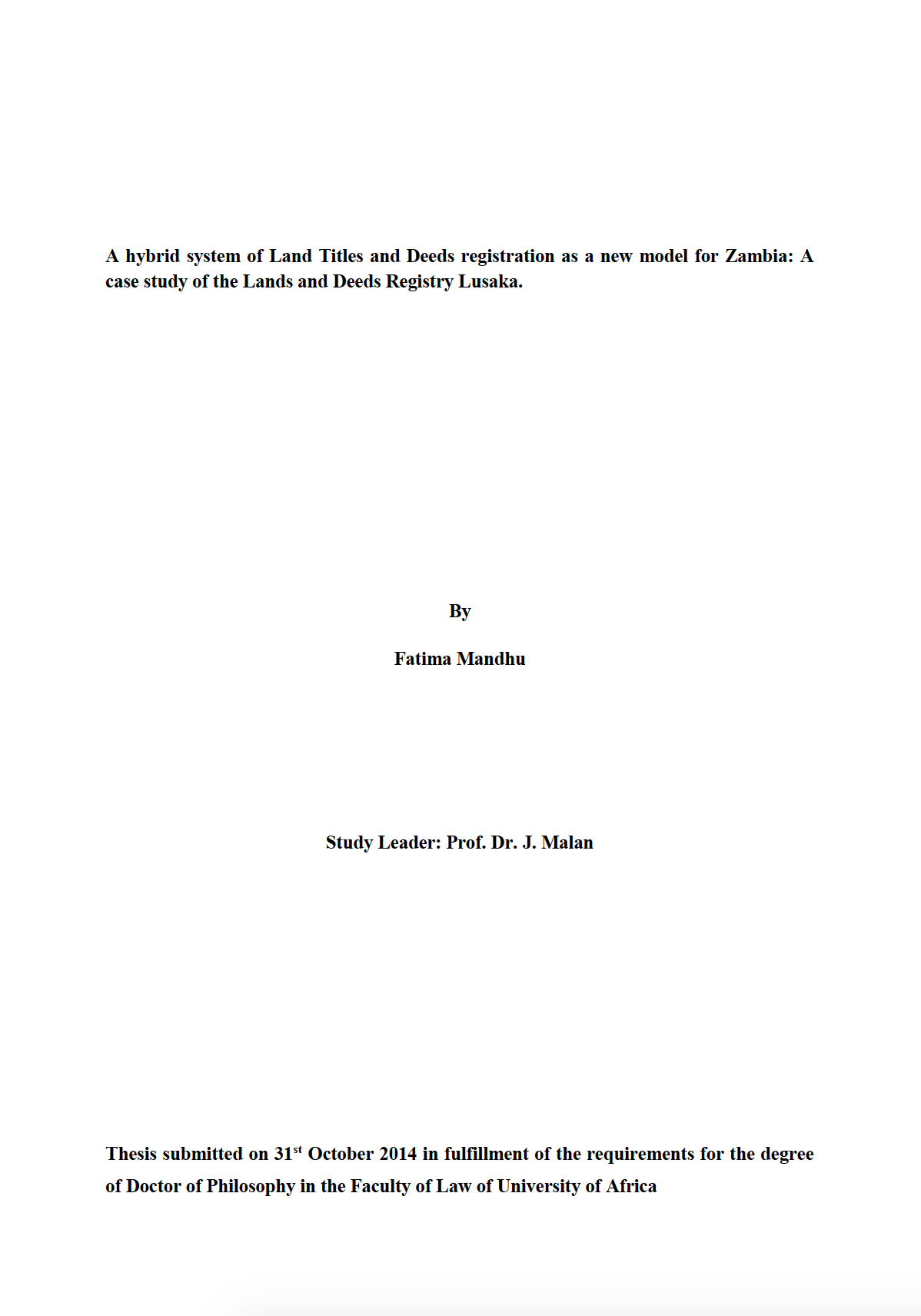Resource information
Anywhere in the world land is the most important natural wealth for the country. The availability of land and its use are a vital part of human existence. Land records, therefore, are of great concern to every country’s government as well as every individual who owns, occupies, uses or has an interest in a parcel of land. In relation to land a person will feel secured or safe with regards to land rights if she has security of tenure and security of tenure is a question of fact. This sense of security encourages the individual to invest in land thus fostering economic development in a given country.
This thesis argues that land registration systems do not create land rights but are used to regulate the rights that arise under property law. Land registration is not a modern phenomenon but has a rich history. In this thesis a very broad classification of the different types of land registrations systems is placed into two categories. Firstly, Deeds registration, and secondly, title registration or what became popularly known as the Australian Torrens System. The two systems with many local variations have been adopted by different countries all over the world. In comparison each system has its own advantages over the other but both have the same objective of providing an appropriate and unique system of land registration leading to security of tenure.
Title registration system has been termed as the positive system based on the mirror, curtain, and insurance principles. By using the case study approach and a comparative analysis, this research analyses the reflection of these three principles from titles registration into the deeds registration system. Furthermore, the comparative analysis is centred on the legislative structure providing for the two different land registration systems. The conclusion is that the two systems do not have the same reflection as far as the three principles are concerned. However, this does not make the titles registration system more advantageous when compared with the deeds registration system.
Finally, a hybrid system appropriate for land recordation and registration model is suggested for Zambia in this research based on a fusion of the two original systems. The proposed model will ensure that it is suitable for a developing country but also relevant in the twenty-first century and that it provides the much needed security to protect individual land rights.


